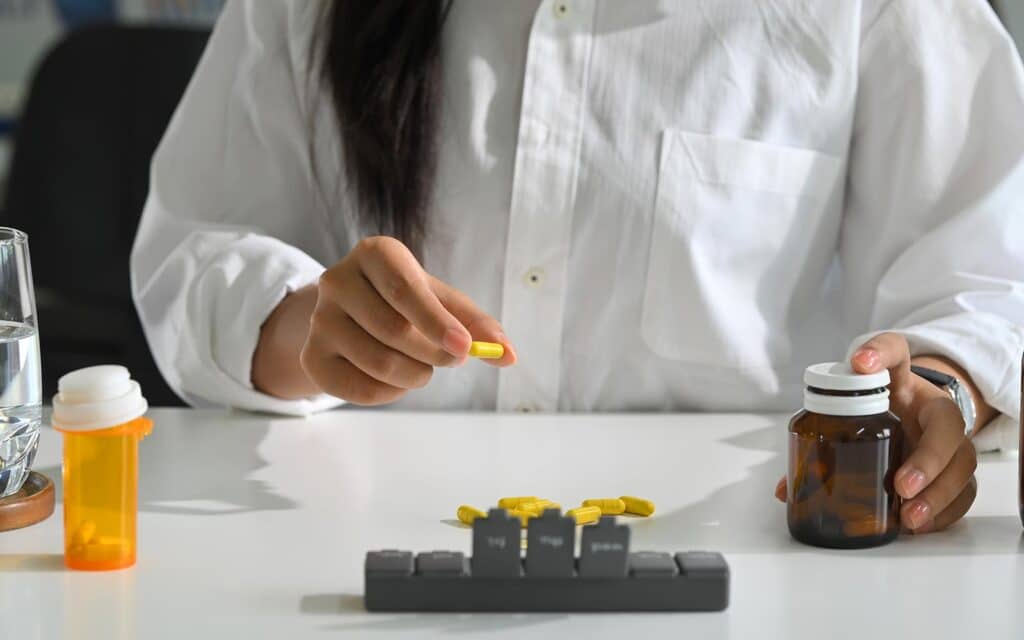Empowering Recovery: Essential Women’s Substance Abuse Group Topics for Healing

Key Points
- Women’s substance abuse group topics cover a wide spectrum of important issues, from motherhood and relationships to trauma.
- Group therapy provides opportunities for women to encourage each other in a non-judgmental manner while learning healthy coping mechanisms.
- If you’re a woman battling substance abuse, group therapy can help you advance in your recovery.
Recovery looks different for every woman. Each will draw on their unique experiences and perceptions as they navigate the rehabilitation process. Making the journey demands courage, support, and understanding from those around you.
Women’s substance abuse group therapy provides this welcoming and supportive environment as a way of giving women safe spaces in which they can share their experiences and support each other without judgment. Group therapy offers powerful opportunities for healing that individual sessions can’t always provide.
Women often struggle with different substance use triggers than men. Trauma, relationship issues, and societal pressure create complex (and often hidden) barriers to recovery. Thankfully, group therapy allows participants to learn from each other’s experiences, broadening their perspectives for a clearer view of the underlying problem.
The power of connection cannot be overstated in recovery. Acknowledging the impact of trauma, family dynamics, body image, and other issues on mental health is a major milestone in confronting your substance use problem. Read on for a comprehensive overview of women’s substance abuse group topics.
Unpacking Trauma and Its Connection to Substance Use
Trauma plays a central role in substance use for many women. Roughly 80 percent of women who seek treatment for substance use disorders report a history of sexual assault, physical assault, or both.[1]
Childhood trauma is an especially reliable predictor of substance use problems and PTSD among adult women.[2] Women in these situations self-medicate with substances to temporarily numb the physical and/or emotional pain, developing strong cravings over time.
Domestic violence and psychological aggression affect millions of women across the world. Over 40% of women report at least one instance of physical violence, sexual violence, or stalking throughout their lives.[3]
Discussing these issues and their long-term ramifications in group settings helps women to recognize their unhealthy coping patterns and replace them with healthier alternatives. Trauma-informed women’s substance abuse group topics help women to identify their triggers and consciously interfere with substance use patterns in order to break the cycle.
Exploring Relationship Dynamics and Codependency
Problematic relationship patterns are a common trigger of substance use problems among women. When codependency takes hold, for example, women may lose themselves in the needs of others. This combination of added stress and self-neglect lays the fertile ground on which a substance use problem can take root.
Partners, family members, or friends may knowingly or unknowingly enable substance use behaviors. This can be as direct as using substances themselves or as subtle as mentioning something that reminded you of a past trauma.
For these reasons, boundary setting is crucial to a successful recovery. Many women find it difficult to say no to others or to prioritize their own needs first. Group sessions provide an opportunity to practice boundary setting with supportive feedback.
Some relationship dynamics are irreconcilably damaged or toxic, no matter how much growth one person may achieve in group therapy. Another key aspect of group therapy for women is learning to identify red flags and make crucial judgments regarding how to respond to them. In some cases, ending the relationship is the healthiest way forward.

Body Image and Self-Esteem Issues
Body image, self-esteem, and substance abuse often go hand-in-hand for women as well as for men.[4] Society’s unrealistic beauty standards, constantly being enforced through various forms of media and commercial messaging, create shame and self-doubt in women that can lead to substance use problems.
Eating disorders also co-occur with body image and substance use in women.[5] Addressing these nuanced issues together requires healthcare providers to apply specialized treatment approaches. Group sessions are integrated into these approaches as a way of providing accountability, affirmation, support, and a clear perspective.
Substance misuse often stems from deep-seated feelings of inadequacy. It takes time, but group support can help women rebuild a positive self-image. In group therapy, women with similar issues share their experiences and offer encouragement to others. Encouragement and the ability to relate with others are key to identifying and resolving negative self-talk patterns.
Finally, balancing self-care while avoiding the perfectionist mentality is key to improving self-esteem and body image. These improvements then empower women to more effectively combat their substance use problems.
Managing Stress, Anxiety, and Mental Health
Women experience workplace discrimination, societal expectations, and caregiving responsibilities differently from men. These experiences can create overwhelming pressure that leads to substance misuse or other harmful behaviors.
Anxiety disorders are roughly twice as prevalent among women as compared to men.[6] Both self-medication and prescribed medication can lead to unhealthy substance use habits. In the group therapy session environment, women learn healthier anxiety management techniques, including breathing exercises and mindfulness practices.
Hormonal changes throughout a woman’s life can trigger mental health symptoms even in the absence of any other triggers. Menstruation, pregnancy, and menopause can all have unpredictable effects on mental health. Peer support helps to normalize these experiences while offering practical coping strategies.[7]
Stress management is essential for preventing relapse throughout the recovery process. Group members should share and discuss techniques for recognizing and addressing stressors that emerge in daily life. Some stress management methods, including exercise, meditation, and creative hobbies, are more effective for certain people than others.
Navigating Motherhood and Family Responsibilities
Motherhood adds multiple nuanced layers to a woman’s substance use recovery journey. Mothers battling substance use problems often feel greater levels of guilt and shame for engaging in these behaviors.
Some mothers (especially those who are divorced) may be fearful of losing custody of their children, which itself can be a powerful trigger for substance use.
Group support is vital in helping mothers process these powerful feelings. Some mothers ruminate on the damage they may have caused their children, causing intense feelings of shame and lowered self-esteem.
Single mothers face unique obstacles when navigating substance use recovery. The burden of balancing childcare with providing financially, especially if the support system is poor, can complicate their participation in treatment. Group therapy participants can share their resources to help women in these challenging circumstances.
Finally, pregnant women are in a much more urgent situation regarding their recovery timetable. Pregnant women require specialized care that incorporates both the mother’s and the developing child’s health. Group support instills hope in mothers struggling with substance use while offering supportive resources.
Building Healthy Coping Mechanisms and Life Skills
Real, sustainable recovery is about more than unlearning your substance use habit. Relearning healthier coping skills that you may have lost years or decades ago is equally important.
For example, emotional regulation without substances is crucial for maintaining sobriety. Women in group therapy sessions learn how to identify, process, and express emotions without relying on substances to mask them.
Communication skill is another major area that often needs rebuilding while recovering from substance use. Repairing relationships that have been damaged by substance use requires a renewed, patient approach to communication. The group therapy environment helps women practice assertive communication techniques and conflict resolution.
Some women in recovery struggle to fill the time that was once spent acquiring and using substances with meaningful and life-affirming activities. Especially in the earlier phases of recovery, this sudden increase in downtime can feel overwhelming, potentially leading to relapse.
Time management skills help women in these situations to structure their days productively. Filling free time with healthy outlets that encourage creative expression, including art, writing, and music, can make the difference between a sound recovery and a more challenging one.
Find Your Path Through Substance Use Recovery With Women’s Group Therapy
Recovery is not a destination but a lifelong journey best undertaken in the company of loved ones and professional providers. Each woman’s path may look slightly different, but none have to walk the whole journey alone.
Women’s substance abuse group topics provide key frameworks for healing conversations, merging detox with proven therapy models. If you feel alone in your recovery, women’s group therapy treatment programs may provide the support and perspective you need to make your next major breakthrough.
Remember that every therapy session is filled with women with experiences just like yours. Don’t let fear or shame stop you from seeking the help you need for your own sake and for those that you love. Find the substance abuse treatment you need and move forward with a renewed sense of well-being and purpose.




